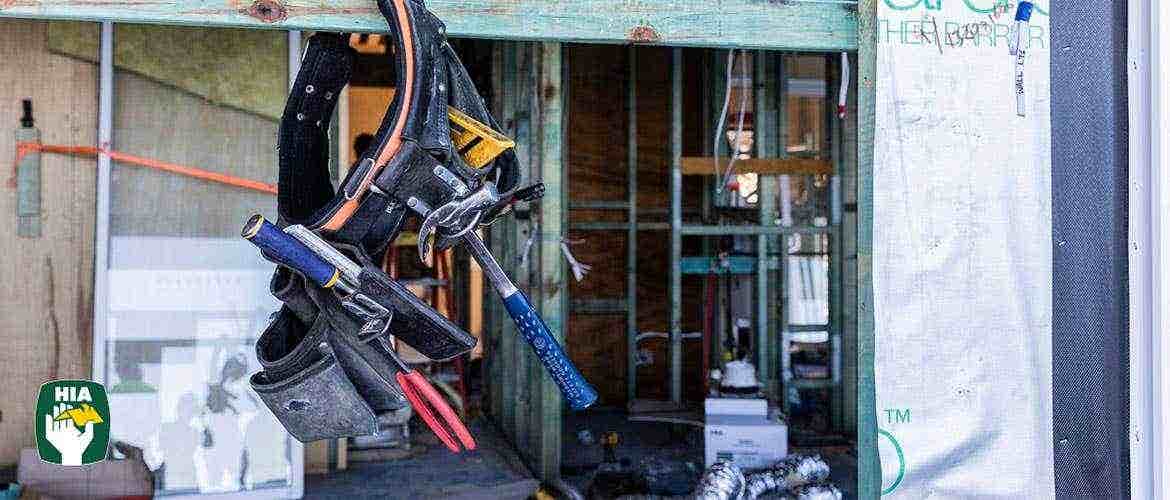From 1 January 2024, workers that are frequently exposed to noise above the exposure thresholds will need to be provided with routine hearing tests (also known as audiometric tests). This requirement is due to NSW adoption of Clause 58 of the Work Health and Safety Regulation 2017.
Hearing tests will help to identify any hearing loss early and allow for appropriate response, can identify ear problems unrelated to noise exposure, and can help you monitor the effectiveness of workplace noise controls.
Will this affect my business?
This change is more likely to affect businesses with employees directly conducting trade work or frequently working in the vicinity of noisy construction tasks (e.g. for subcontract trades the subcontracting business is responsible). Businesses that do not employ workers who are frequently exposed to high levels of noise will not be directly impacted.
How do I identify workers who may be exposed to excessive noise?
A good practice to prepare your business for the requirements is to conduct a risk assessment considering the work roles in your business and associated tasks, and whether hearing protection is frequently specified for those workers.
Not every worker employed in construction will require testing, it depends on the work they perform. Certain trades and workers who are frequently on construction sites may be more directly exposed than other workers in the business. If a worker is required to wear hearing protection frequently during their typical workday, this is a good indicator that the worker may be exposed to sounds exceeding the threshold and will require periodic hearing tests.
Many tasks generate noise and may exceed the threshold if performed frequently or for long durations. Equipment manufacturers can often provide information on their equipment’s potential sound levels, but noisy tasks include those involving:
- Impact equipment (piling hammers, concrete breakers etc.)
- Explosives and explosive tools
- Pneumatic tools (e.g. nail guns)
- Power tools (saws, hammer drills etc.)
- Motorized plant equipment/machinery
What do I do if I suspect a worker is exposed to frequent loud noise?
For roles that you have identified are frequently carrying out noisy tasks and require hearing protection:
- You should make a reasonable attempt to assess the noise. This will clarify the level of exposure and help you target further efforts.
- Audit your control measures to determine any ways to further reduce noise exposure.
- Discuss and implement the periodic hearing tests for those workers (with or without the noise assessment).
What are the exposure thresholds?
Clause 56 of the WHS Regulation sets the exposure standards at an equivalent exposure of 85dB(A) average over 8 hours, and a peak noise level of 140dB(C). An occupational hygienist will be able to take monitoring data and compare the results to the exposure thresholds to help you determine your requirements.
For comparison, normal conversation is around 60-70dB, 80dB is similar to a loud alarm clock or the noise of busy traffic, a rock concert may measure between 90-120dB, and 140dB is equivalent to a jet engine at 30m or a gunshot.
As there is both a sound intensity and time element to exposure, you need to consider both the noise level and the frequency/duration of exposure when assessing risk.
What are my obligations?
Where an issue is identified, the business is responsible for organising and paying for the hearing test with an audiologist or other competent person.
The business will also need to keep a record of all tests and take actions as necessary if an issue is identified. The worker will be informed of their results by the audiologist immediately after the test.
For new workers:
- You will need to arrange a baseline hearing test within three months of their commencement date.
- Arrange follow-up monitoring hearing tests at least every two years during their employment.
For existing workers:
- Arrange for a hearing test, and then subsequent hearing tests at least every two years during their employment.
Record keeping:
- Keep a copy of all hearing test reports including baseline test reports as confidential documents.
- Provide a copy of the reports to the employee when their employment ends.
Where can I get more information?
SafeWork NSW has additional information on their website.
To find out more, contact HIA's Building Services team on 1300 650 620 or email hia_technical@hia.com.au.
Craig Jennion
Housing Industry Association
Executive Director - Hunter



